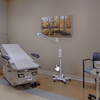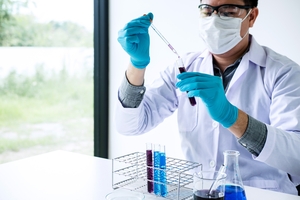Book urgent care & walk-in clinics near me in Mission, KS
Own a clinic? Add your location.
Help patients book appointments with you on Solv. It's free!
8 instant-book locations

Carbon Health Urgent Care, Kansas City- Ward Parkway
Carbon Health Urgent Care

Carbon Health Urgent Care, Overland Park - Hawthorne Plaza
Carbon Health Urgent Care

NextCare Urgent Care, Lee's Summit
NextCare Urgent Care

NextCare Urgent Care, Ambassador
NextCare Urgent Care

NextCare Urgent Care, Liberty
NextCare Urgent Care

NextCare Urgent Care, Leavenworth
NextCare Urgent Care

NextCare Urgent Care, 6th St
NextCare Urgent Care

Xpress Wellness Urgent Care, Lawrence
Xpress Wellness Urgent Care

Prestige Medical Care, Overland Park
Prestige Medical Care

Urgent Care of Kansas City
Urgent Care of Kansas City

Nextcare Urgent Care, Ambassador Non-Provider
Nextcare Urgent Care

CareNow Urgent Care, Prairie Village
CareNow Urgent Care
Westwood Urgent Care
Westwood Urgent Care
U of Kansas Urgent Care
U of Kansas Urgent Care
Shawnee Mission Medical Center
Shawnee Mission Medical Center

AdventHealth Centra Care, Shawnee
AdventHealth Centra Care
Family Health Care
Family Health Care

Concentra Urgent Care, Kansas Avenue
Concentra Urgent Care

CareNow Urgent Care, State Line Road
CareNow Urgent Care

CareNow Urgent Care, Leawood
CareNow Urgent Care
Own a clinic? Add your location.
Help patients book appointments with you on Solv. It's free!
Discover Mission Healthcare with Solv
Solv simplifies your search for healthcare in Mission by seamlessly connecting you with urgent care and walk-in clinic options. With Solv, you can easily locate nearby clinics, access their ratings and reviews, view their hours of operation, and directly book same-day appointments with trusted providers. Our platform offers convenient features such as saving your appointment history for instant re-bookings and tracking your health insurance usage and deductible. Whether you're seeking care for sudden illnesses or minor injuries affecting you, your family, or your children, Solv streamlines the process by allowing you to filter by insurance acceptance, pediatric services, and current availability.
What to Expect with Your Visit
When you seek urgent care in Mission, anticipate an efficient process designed to address your health concerns. For the best experience, it’s important to properly prepare for your visit and understand the likely expectations once you enter the clinic.
Preparing for Your Visit
A successful urgent care visit starts with good preparation. Here's how you can get ready:
- Where possible, book a visit online with Solv to save time waiting in the clinic
- Bring your ID, insurance card, and an accepted method of payment
- List your current medications, allergies, and any chronic conditions you may have
- Prepare a brief description of your symptoms and concerns, including their onset
- Think of any questions you might have for the healthcare provider
During Your Visit
You'll receive immediate attention from skilled healthcare professionals at the urgent care center focused on promptly diagnosing and treating your condition. Expect:
- A brief wait, depending on the clinic's volume and whether or not you booked ahead with Solv
- Check-in by providing your ID, insurance, reason for your visit, and completing initial registration paperwork
- A consultation with a healthcare provider to discuss your symptoms and medical history
- Possible diagnostic tests (e.g., X-rays or lab tests), if needed
Treatment may include prescriptions, wound care, or other immediate interventions.
Following your visit, ensure you understand home care instructions or medication usage. You might also receive referrals for specialist care or requests for follow-up visits to monitor your condition. Communication with your healthcare provider is key, so don't hesitate to reach out with any post-visit questions or concerns.
Urgent Care FAQs
What is urgent care?
Urgent care is a healthcare service focused on providing immediate, non-life-threatening medical attention. Urgent care centers treat conditions such as sprains, cuts, burns, and common illnesses and offer a range of services, including diagnostic and preventive care like immunizations and physicals. With an estimated 15,000 clinics in the U.S., urgent care centers operate beyond traditional primary care office hours, offering a convenient and lower cost alternative to emergency rooms for urgent but minor health issues.
What is a walk-in clinic?
A walk-in clinic is a type of healthcare facility that provides medical care to patients without the need for an appointment. These clinics cover a range of services such as urgent care, occupational medicine, and primary care with walk-in availability. They cater to non-emergent health issues, offering a convenient option for accessible medical attention. Walk-in clinics vary from free services provided by government, charity, or foundation-operated facilities to private clinics with affordable rates, serving as a practical alternative for minor illnesses and injuries outside of traditional doctor's offices and emergency rooms.
Do urgent care centers in Mission take appointments?
Historically, urgent care centers were strictly an on-demand, walk-in healthcare service. More recently, as consumer behaviors and expectations have evolved, many urgent care clinics have begun offering book ahead visits, allowing consumers to select a same-day or next-day time that works best for their schedule. Use Solv to find a Mission urgent care center that offers advanced bookings (or appointments) and book online.
Are Mission urgent care centers open after hours?
Yes. Most primary care doctor offices are open during routine work hours, Monday thru Friday, 9:00 am to 5:00 pm. Conversely, most of the urgent care centers in Mission are available after hours, on weekends, and many holidays. Typical urgent care hours are 8:00 am to 8:00 pm daily, although location-specific hours may vary.
How much will an urgent care visit in Mission cost?
The cost of a visit to an urgent care in Mission varies, with cash prices for the base visit generally ranging from $100 to $175. Additional treatments, such as lab tests, X-rays, or immunizations, can increase costs, typically between $50-150 each. If you're using insurance, expect a co-pay between $20 and $50, depending on your plan and whether the clinic is in-network. Prices differ based on location, so it's best to check directly with the urgent care center and your insurance provider for accurate cost estimates.
Related Searches
Drug Test in Mission, KS
A1C Test in Mission, KS
DOT Exam in Mission, KS
Ear Wax Removal in Mission, KS
Pregnancy Test in Mission, KS
Sports Physicals in Mission, KS
STD Testing in Mission, KS
DNA Test in Mission, KS
Blood Test in Mission, KS
Lab Tests in Mission, KS
Diabetes Test in Mission, KS
Flu Test in Mission, KS
Basic Metabolic Panel in Mission, KS
Diagnostic Test in Mission, KS
Cholesterol Test in Mission, KS
Glucose Test in Mission, KS
CMP Test in Mission, KS
Allergy Testing in Mission, KS
Strep Test in Mission, KS
TB Test in Mission, KS
Urinalysis in Mission, KS
Vitamin D Test in Mission, KS
H Pylori Test in Mission, KS
Mono Test in Mission, KS
Pulmonary Function Test in Mission, KS
RSV Test in Mission, KS
Thyroid Test in Mission, KS
Pediatric Urgent Care in Mission, KS
COVID-19 Pill in Mission, KS
COVID-19 Testing in Mission, KS
Retail Clinic in Mission, KS
Dermatologists in Mission, KS
Hepatitis test in Mission, KS
Aetna Urgent Care
Blue Cross Blue Shield Urgent Care
Cigna Urgent Care
COVID-19
Flu
United Health Urgent Care
» All services in Mission, KSFind urgent care
Nearby cities
Everyday Healthcare, Simplified
Expert advice to help you live your best life







